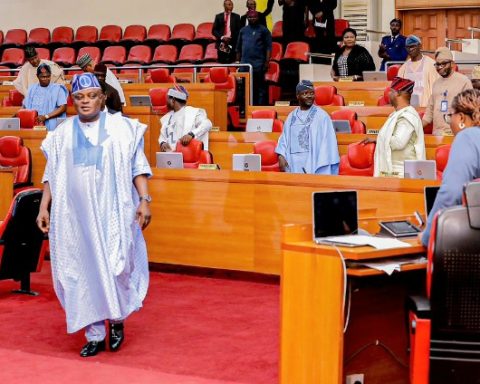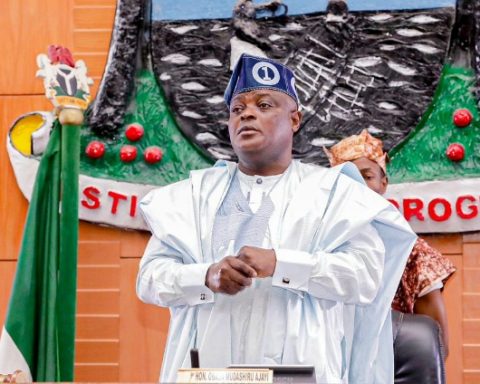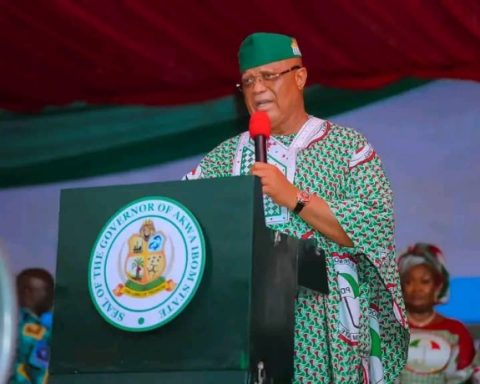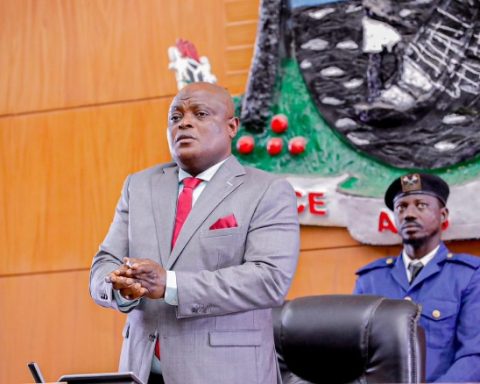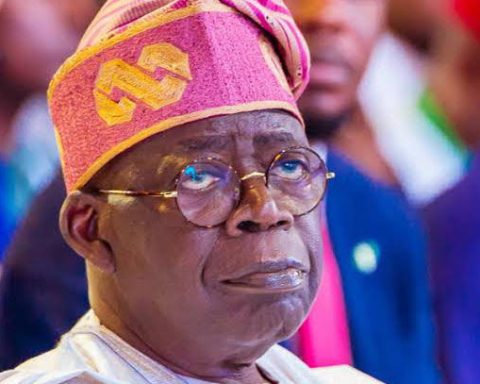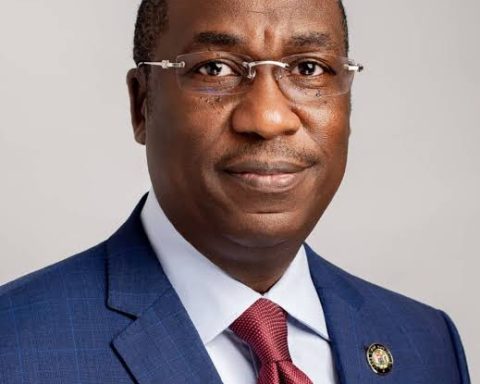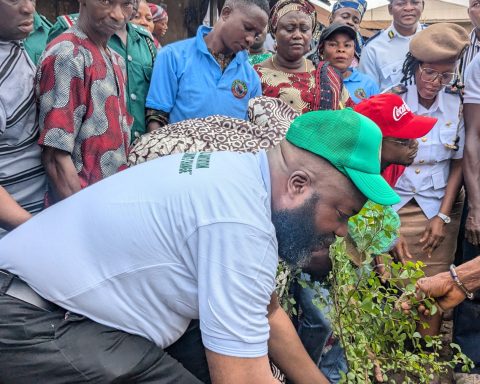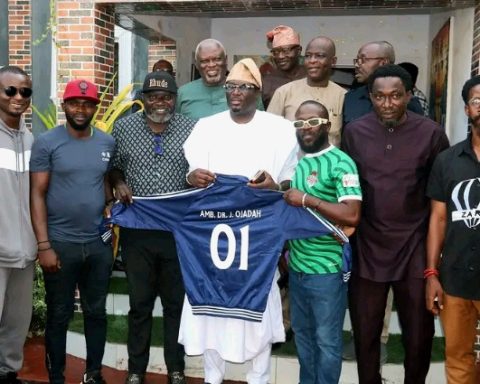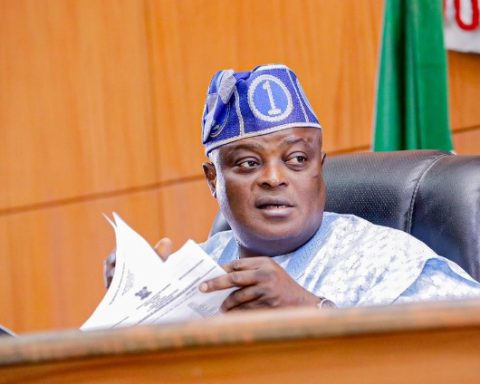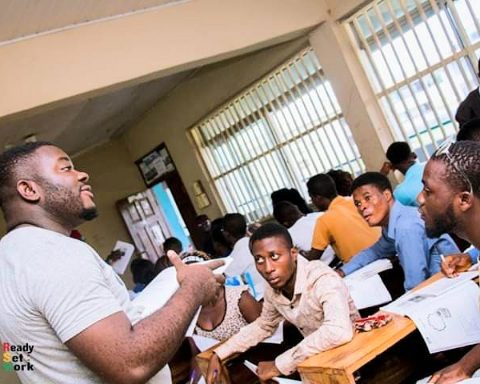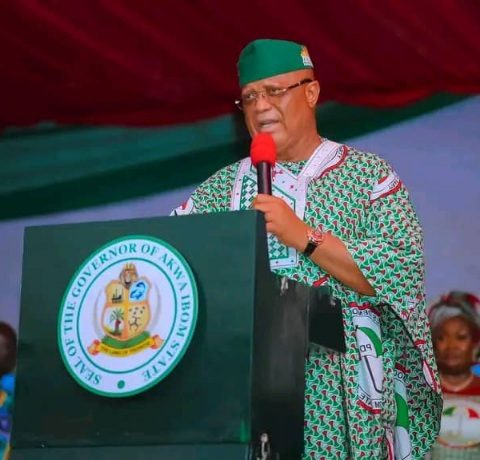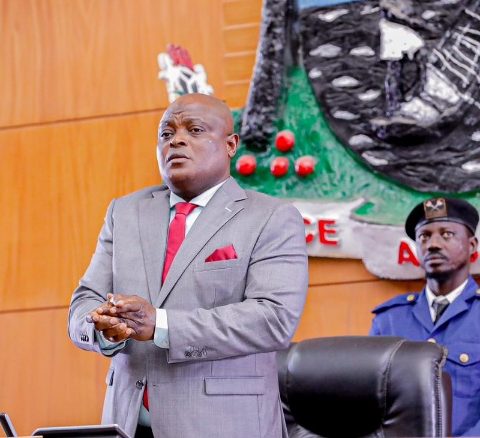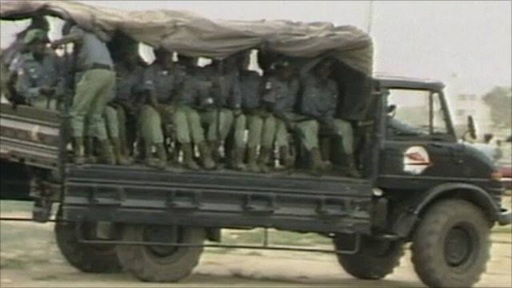
27th August 1985 qualifies as a red-letter day. On that memorable day, Brigadier Joshua Dogonyaro made the following announcement on Nigerian radio and television (It was preceded by martial music);
Before the day was over, what followed was another announcement (again preceded by martial music) but this time by Brigadier Sani Abacha:
How time flies!!
That was thirty-eight years ago. What has been most remarkable is that throughout all discussions about coup d’etats which featured at this year’s African Week at Cambridge University; Oxford University and London School of Economics, the recurring decimal was the place of coup d’etats – starting with the first one in Africa (Togo: on 196) and the latest one in Niger on 2023.
My firm (J.K. Randle International) Think Tank has been inundated with requests from scholars who have been meticulously studying the subject for several decades in all its ramifications. They have been scrutinizing every single coup including attempted coup d’etats as well as these that were initially successful but crumbled afterwards into woeful abyss. As for coups and counter coups. They are considered research materials within the context of political science; philosophy; economics; and law and order.
What was truly amazing was the vastness of the research material regarding coup d’etats as violent game – changers. Even beyond that, the academic community patiently devoted effort and diligence to changing the prison and perspective to the indomitable spirit and superlative perseverance of the public who are the first to hail successful coups but once disillusionment sets in they proceed to awaiting the next one or revert to nostalgia in favour of the previous oppressor they thought they had gotten rid of for good. Incredible survival strategy takes over.
That is when the exactitude of history collides with the benefit of hindsight or blurred recollection. A case in point was the front page report of ‘’Saturday Vanguard’’ of August 5, 2023. Headline; ‘’UNKNOWN GUNMAN SHOT IRONSI’’ -Emeka Obasi
Fifty seven years after his assassination, the departure of General Johnson Aguiyi – Ironsi continues to be engulfed in mystery. Even those closest to him came out with different versions of what transpired in Ibadan, on July 29, 1966.
In all accounts, it is impossible to name who really shot the first African to command United Nations forces and the first Nigerian general. What is certain is that the trigger was pulled by a Non Commissioned Officer (NCO) after commissioned officers lost control of the rabid situation.
Recently, Col. Sani Bello, then a Second Lieutenant and Ironsi’s Army Aide de Camp (ADC) debunked claims that he made a deal with the Air Force ADC, Lt. Andrew Nwankwo. The supposed agreement benefitted the duo who escaped as their boss faced imminent death.
It is curious that it took 57 years for Bello to come out with this version. Nwankwo is late now, it is difficult to get his reaction. However, I find it odd that a brave officer would agree to run away instead of defending his principal even if death was the price.
Lt. Akintunde Akinsehinwa died defending Gen. Murtala Mohammed in 1976. Maj. Usman Bello was killed as he tried to fight for Gen. Ibrahim Babangid, in 1990. From Bello’s account, he was arrested and detained when he went to ascertain what had become of those who were sent to find out what went wrong at Government House, Ibadan.
While Nwankwo announced to Biafrans that Bello saved him, the latter credits Garba Dada Paiko as their saviour who ordered them into a Landrover as the killer gang got really bloody thirsty. This account makes some sense since Bello and the Ironsi family have continued to relate.
I tend to agree with Bello that he was going to be gunned down, like Ironsi and Col. Adekunle Faluyi, until Dada Paiko intervened. What I do not know is what happened to Adamu Umoru, Fajuyi’s ADC who was with the other Subalterns at Government House Ibadan during the coup.
Paiko and Bello bailed from Bida Province, that could have worked. If Paiko desired, he would have left Nwankwo with the assassins instead of taking him away with Bello. The moment he was about to drive off, Sgt. Tijanni Maiduguri fired the shot that killed the military governor of Western Region.
It is almost certain that no commissioned officer was there when Ironsi died That explains the different names being handied about since 1966. Yakubu Danjuma, Dada Paiko, William Walbe, Nuhu Nathan, Clement Dabang, Musa Bitiyong, Ibrahim Rabo Bako Wali, all these names keep popping up.
Dada Paiko played a major role in the abduction of Ironsi and Faluyi but denied killing the general. He came out with another puzzle. The name Sgt. Bakari Baba Lapai should interest everyone. He was alleged to have hit Danjuma’s shoulders for wasting time with the Head of State.
According to Paiko, while Nuhu Nathan snatched Ironsi’s crocodile swagger stick called Charlie, Baba Lapai disappeared with it. Till date, there is no trace of Bakari Baba Lapai in Nigeria Army records, so said Paiko who unfortunately, is not alive today to repeat himself.
Paiko further explained that while in the United States in 1963, he came across one Vararo Segura, an Ifa high priest, also known as Obafemi. The story was that supreme power in the world was with Orisha, and it was believed that Chief Ladoke Akintola, governor of Western Region, before Fajuyi possessed such power.
Segura tried to convince Dada Paiko that someone snatched the power from Akintola after his assassination in January 1966. And the verdict was that Ironsi had it in his crocodile swagger stick. A funny tale because the general was in Lagos at the time Emma Nwobosi led troups to kill Akintola in Ibadan.
The fear of Ironsi was real. As a United Nations Peace keeper in the Congo, he braved Katanga rebels to rescue an Austrian medical team and some Nigerian soldiers. That act earned him the Ritter Kruez ( First Class ) medal.
The Congolese rebels under Moise Tshombe were dreaded as cannibals. The killing of Lt. G. Ezeugbana confirmed it. Lt. Olusegun Obanjo was lucky, He cheated death after being dumped in a vehicle booth. That Ironsi dared them made headlines.
The second Secretary General of the United Nations, Dag Hammarskjold, did no survive the Katanga crisis. His aircraft was blown up near Ndola, Zambia on his way to negotiate a ceasefire between UN troops and Tshombe’s soldiers.
Those who took Ironsi and Fajuyi away, knew they returned from Congo with medals. What they did not know was that the crocodile swagger stick was bought in Lumbashi as a souvenir.
It possessed no power from Orisha. Apparently, Baba Lapai was a ghost sent from the spirit world.
The mystery is endless. Stories continue to fly. Some said Ironsi and Faluyi were tied to a Land Rover, driven to Olodo Village along Ibadan – Iwo Road, tied to trees and executed. Another account said they were buried in a shallow grave at Lalupon. However, their bodies were exhumed from the Military Cemetery, Jericho Ibadan.
How strange that some of the names associated with Ironsi’s death in 1966, were also killed much later over coup plots. Dabang, Rabo, Umoru died in 1976. Bitiyong was executed in 1986. Others who were part of second coup of 1966, died following a third coup in 1976. Murtala, Isa Bukar, Abdul Way, Bukar Dimka, Mac Donald Gotibp, Sabo Kwale, all lost their lives.
Bello was commissioned on July 29, 1965. Hammarskjold was born on July 29, 1905. Ironsi died on July 29, 1966. His successor, Yakubu Gowon, was overthrown on July 29 1975. Murtala who led the coup against Ironsi, became Head of State on July 29, 1975.’’
However on July 10 2023 ’’The Times’’ provided a glimpse of the murky underworld of coup d’etats on its front page. It journalism at its finest.
Headline: FRANKO – UK PLOT TO OUST GADDAFI WAS A DISASTER, ADMITS SPY CHIEF
Charles Bremmer
‘’The French inspired campaign with Britain to overthrow Colonel Gaddafi in 2011 was a disastrous error, according to France’s spy chief in Libya at the time.
The messy inside story of the secret operations to bring down the Libyan dictator has been told by Jean-Francois Lhuiller, a former Tripoli station chief of the Directorate General for External Security (DGSE). His book has angered the secret service where he worked for 27 years.
Lhuillier, 69, a Lieutenant Colonel at his retirement in 2014, has also embarrassed the DGSE by revealing the dysfunctions of an agency that has enjoyed fame with The Bureau, the television series about its operatives.
In The Tripoli Man: Memoirs of a Secret Agent and media appearances, Lhuillier describes executing what he calls the incomprehensible decision by President Sarkozy to back rebels against Gaddafi after he had built a relationship with the Mercurial tyrant.
‘’The military operation was brilliantly run but it was not thought through politically and had disastrous consequences. There was trickery because Gaddafi was extending his hand to the West. Not only didn’t we grasp the hand that was being extended to us but we also cut the head off. I find that completely immoral to have done that’’ he told France 2 television.
‘’We eliminated Gaddafi and destroyed his country without worrying that it was a rampart against Islamist terrorism. The consequences of this disastrous expedition were not foreseen. It was incomprehensible that Sarkozy wanted his scap.’’
Lhuillier does not address the allegations that led to Sarkozy being sent for trial in May on charges of accepting campaign finance from Gaddafi in 2007. However, he recounts his close dealings with Gaddafi’s inner circle, who say they delivered millions to Sarkozy.
Throughout the book, Lhuillier refers to the DGSE by its insiders’ name ‘’la Boite’’ slang for ‘’the firm’’. He denies claims that French agents killed Gaddafi – the dictator died after being beaten by rebels in October 2011 – but he confirms that forces from the ‘’action service’’ of the DGSE were operating with the rebels in Libya and he indicates that Britain’s SAS was there too.
As an example of secrecy inside the DGSE, a Scotsman named “Pierce” invited Lhuillier to lunch in Tunisia to ask him to put the SAS in touch with DGSE soldiers in Libya. ‘’So it was member of a foreign service who informed me about the presence of my colleagues in the country…. I put on a big smile and pretended that I knew,’’ he said.
The allied operation in which the French and British bombed Gaddafi’s forces and armed rebels, was staged after Sarkozy persuaded David Cameron to join in. Lhuillier describes the intervention as French led, but the British sometimes outsmarted them.
In March 2011, the head of the DGSE flew to Tunisia to meet Moussa Koussa Gaddafi’s foreign minister, to persuade him to defect to France. As the French were arranging a plane, they found that M16 had snatched him from under their noses and flown him to London. ‘’No doubt our British allies must have made a more generous offer,’’ he says.
The fit looking former commando is bitter about the arrival of civilian command and personal in the DGSE, although it is still part of the military. The change was ordered after the debacle of the Rainbow Warrior in 1985, when La Boite, acting under orders, sank the Greenpeace ship in New Zealand.
Diluted by the mass recruitment of civilians, the agency has become bloated and lost its military values of loyalty, trust and initiative, he writes.
The DGSE, now headed by Bernard Emie, a 64-year-old diplomat, is upset that it was not asked to vet the book, which appeared without its knowledge. ‘’By publishing such works, former members of the service are breaking their oath [of secrecy] and damaging the institution.’’ It said.’’
A huge number of eminent scholars have committed their entire career to establishing that there is clear distinction between coup d’etats and other forms of violence such as banditry, kidnapping, insurgency, riots etc. The determinant factor revolves around whether or not regime change is contemplated as the ultimate outcome. Other issues that would have to be resolved relate to sovereignty, territory and security.
The concept of bloodless coup d’etat is a matter that requires further interrogation. In any case, it is a very rare occurrence. We can delve as far back into ancient history, death and despair by the losers. It is the victors who can lay claim to triumph and proceed to jubilate and rejoice.
With every coup d’etat the stakes are very high. Scholars have been able to penetrate the DNA of coups from planning to execution and whatever follows afterwards. According to Professor Alan Goddard – Smith women are poorly represented in coup plotting!! However, ironically when coup d’etats fail women and children suffer massive collateral damage.
Penalties go beyond execution of the coup plotters. Who ever is remotely connected with them becomes victims.
I was somewhat intrigued by the treatise of Dr Alex Morris who has devoted the last five decades on research into what he calls ‘’volcano eruptions’’ as a euphemism for regime change through means other than through the ballot box. The range covers assassinations, invasion, battles e.t.c. even when the coveted prize is not necessarily territory but a damsel. It goes back several centuries with special attention to Roman and Greek empires as well as the much older civilizations. In China, Japan and India. Thankfully, Africa is not ignored entirely. Anyway, eminent professors of history and literary giants have gone to great length to make the point that much of the work of William Shakespeare revolves around coups with Julius Caesar as the prime example. Somehow, the supernatural always creeps into the drama.
A case in point was provided by ‘’Saturday Vanguard’’ newspaper of August 5 2023. Front page headline:
TRADITION’S SON SHOT DEAD BY FRIEND WHILE TESTING CHARM’’
Tragedy struck in Laoso camp, in Ondo town, Ondo State, as a son of a traditionist, identified as Tunde Akinmoyeewa, was shot dead by his friend, Bode, while testing the potency of a charm placed on him. Police in the state said that the deceased was an ex – convict and cult member while the suspected killer was also a cultist. Reports had it that the friends were trying to fortify themselves ahead of the yearly Ogun festival in town.
Saturday Vanguard gathered that, his friend was asked to test the potency of the charm put on the victim with a dane gun.
An eyewitness account.


